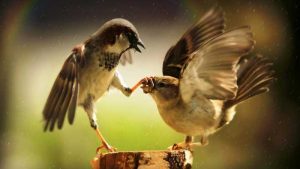Finding Wonder in Nature and the Mind
What is it about nature that calms the mind and provides a support for mental and emotional well being? As someone who has spent a lot of my adult life outside, farming and camping, I have some thoughts and observations to share with you.
The relationship between nature, connection, and mental health seems intuitively obvious, especially to nature lovers like myself. When I am feeling down, strung out, or lost in an emotional fog, merely going for a walk in the woods soothes my mind and body, softening the sharp edges and balancing my mood.
Watching two birds play around in the sky can stimulate a childlike state of wonder, immediately lifting the trance of mental noise and bodily tension that is so often present for me. This is an ancient experience of course, as old as consciousness itself. Cultures from all over the world speak to the importance of observing and communing with the natural world as a means of settling the mind. More recently, psychologists have been pointing towards the wide range of health benefits to spending time outdoors, from reduced stress and anxiety manifested in various pathologies, to increased creativity and well being.
Rather than rely on ancient traditions or modern science as evidence for the legitimacy of this relationship, I think considering our direct experience is one of the best ways to make the connection. How does it feel for you when you spend time outdoors, to gaze at a flower or to feel sand underneath your bare feet? How does having a houseplant in your kitchen impact your mood and your relationship to the space? Do you have a pet? Although highly domesticated, pets most certainly exhibit some of the most endearing and relatable qualities of the natural world. And on the flip side, what is it like for you to spend hours indoors surrounded mostly by artificially industrialized materials, mostly in straight lines and right angles? No wonder we need some fresh air!

A lot of mental anguish comes from getting wrapped up in our thoughts, to the point where we are entirely identified with them, absorbed in stories of the past and future. This is totally normal, or course, and it’s a source of much human suffering. Observing the natural world can disrupt the looping mind, as we are surrounded with a life force that doesn’t seem caught up in overthinking. A tree is tree-ing, simple as that. A blade of grass is grass-ing. There is no second guessing, no hesitation, no confusion going on there. Being in the presence of lives that have such an uncomplicated way of being stimulates our own capacity for the very same thing. It gives us permission to relax and let go. We live in a human-made world of TV shows and traffic, where the internal dramas of the mind have every chance to get replayed again and again, projected back to us throughout our day. Spend twenty minutes next to a small river and be reminded of the way of the universe: a beautifully elegant flow, always yielding and impossibly durable. Nature is a teacher in this way, persistent in her lessons, unflagging in her composure.
The sound of wind blowing through the trees has a cleansing quality that reminds us we can let go of things and make space for the new. Witnessing a sapling grow out of place in poor soil conditions reminds us of our own dignity, our ability to thrive despite limitations. A bumble bee sleeping in an open flower speaks to our own innocence and vulnerability. A chipmunk frantically dashing about the trunk of a tree makes us laugh and remember our nature as wildly playful beings. There are countless metaphors to be found in nature, endless invitations to slow down, reflect, and digest the constant hyper-input of modern life. Very rarely do we find places in the natural world that ask us to speed up, improve upon ourselves, and get results. Although modern agriculture operates in this results oriented way, step beyond the stone walls of the cornfield and into the forest and find a refuge permeated by spaciousness and stillness. This is wonderfully abundant medicine for a tense mind.
Lastly, I think it’s important to point out that the distinction between ourselves and nature is conceptual at best, and falls apart upon the slightest investigation. We are made of the same material we observe in nature, and on a deeper level, as the great astronomer Carl Sagan put it, “we are a way for the universe to know itself”. This is great news of course, because it means we can get in touch with nature wherever we are, by observing and inhabiting our own bodies, magnificently complex and filled with the same dynamics of a Amazonian jungle. Our most intimate relationship with nature begins with our breath, our heartbeat, our sensory experience. To get into connection with our own bodies may be the most powerful source for psychological health there is. Ever grounding, ever present, our bodies are a homecoming. Walking in a park or hiking to a mountaintop reminds us of this, that we belong, and that the world “out there” is not separate from us. This gives us true peace of mind.

